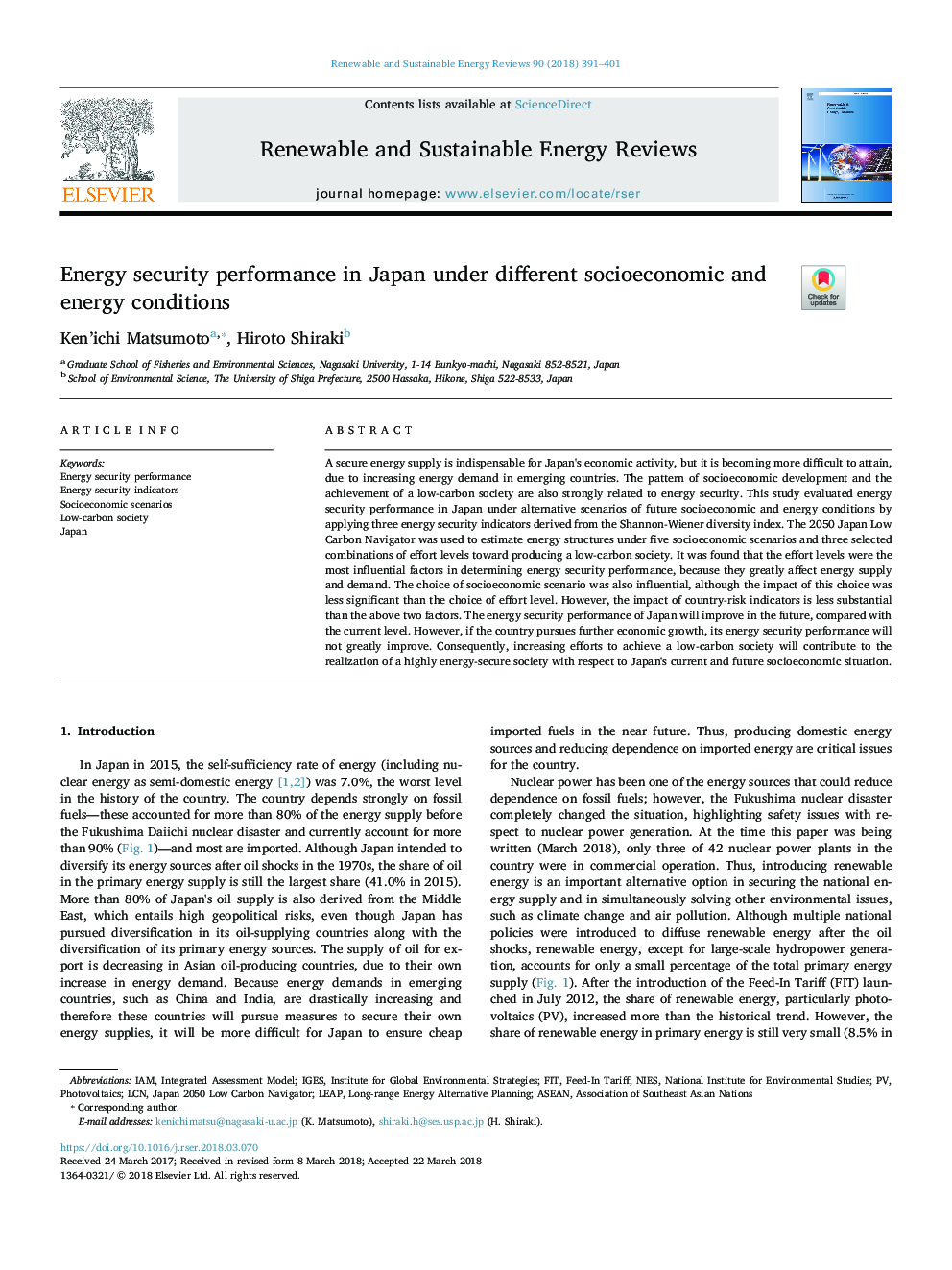| Article ID | Journal | Published Year | Pages | File Type |
|---|---|---|---|---|
| 8111296 | Renewable and Sustainable Energy Reviews | 2018 | 11 Pages |
Abstract
A secure energy supply is indispensable for Japan's economic activity, but it is becoming more difficult to attain, due to increasing energy demand in emerging countries. The pattern of socioeconomic development and the achievement of a low-carbon society are also strongly related to energy security. This study evaluated energy security performance in Japan under alternative scenarios of future socioeconomic and energy conditions by applying three energy security indicators derived from the Shannon-Wiener diversity index. The 2050 Japan Low Carbon Navigator was used to estimate energy structures under five socioeconomic scenarios and three selected combinations of effort levels toward producing a low-carbon society. It was found that the effort levels were the most influential factors in determining energy security performance, because they greatly affect energy supply and demand. The choice of socioeconomic scenario was also influential, although the impact of this choice was less significant than the choice of effort level. However, the impact of country-risk indicators is less substantial than the above two factors. The energy security performance of Japan will improve in the future, compared with the current level. However, if the country pursues further economic growth, its energy security performance will not greatly improve. Consequently, increasing efforts to achieve a low-carbon society will contribute to the realization of a highly energy-secure society with respect to Japan's current and future socioeconomic situation.
Keywords
Related Topics
Physical Sciences and Engineering
Energy
Renewable Energy, Sustainability and the Environment
Authors
Ken'ichi Matsumoto, Hiroto Shiraki,
